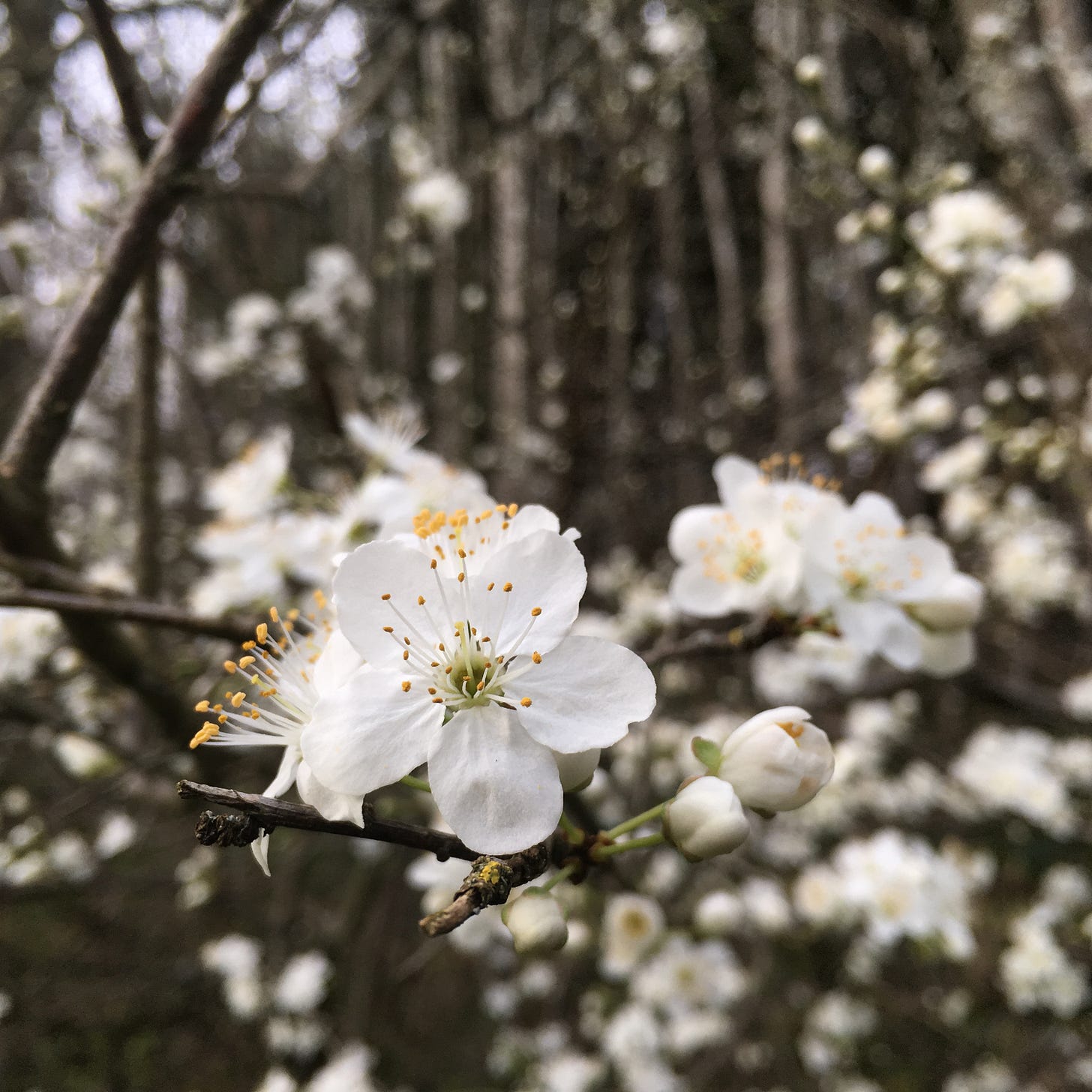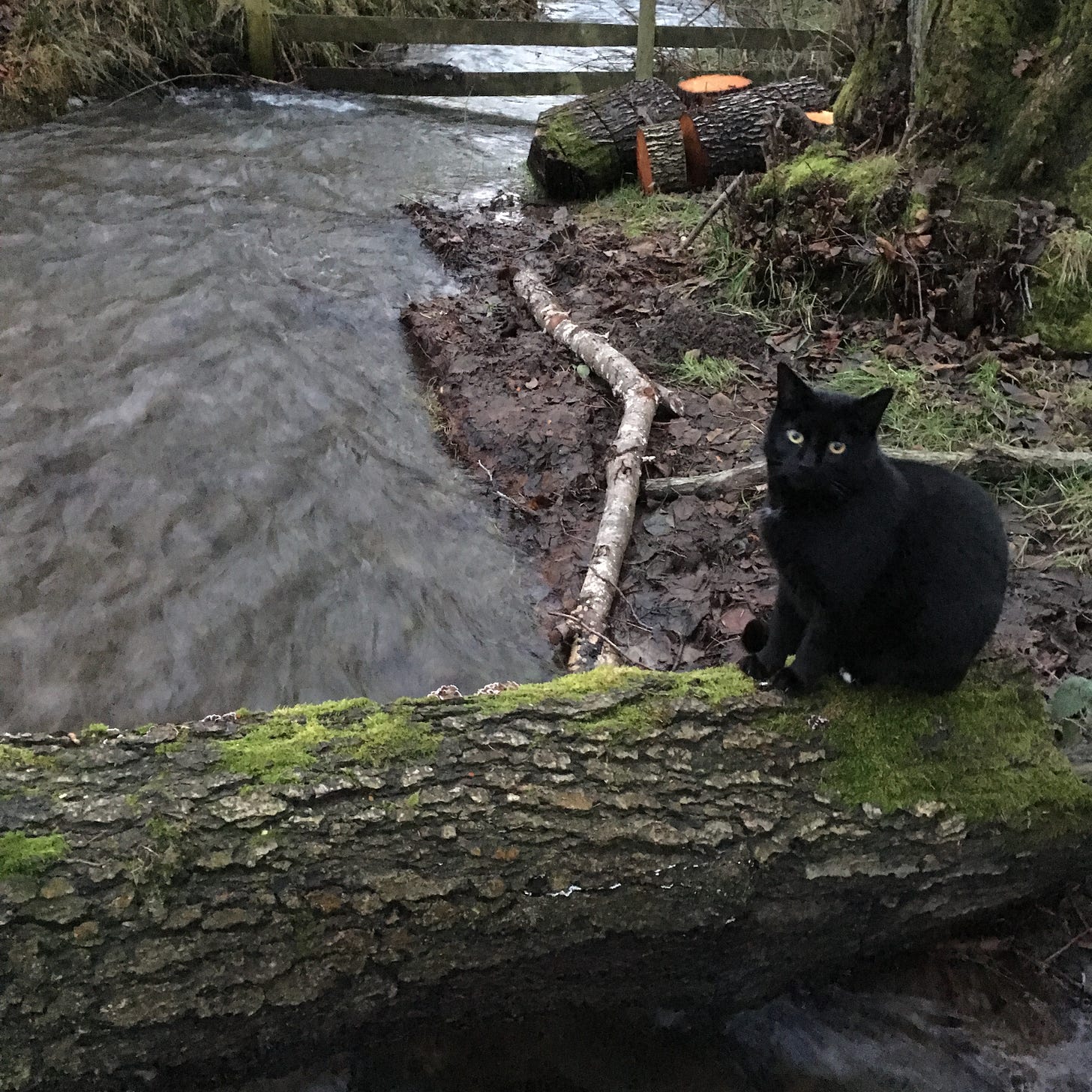Untitled (Winter flowering cherries: dusk). Nr Kinsham, 2017.
.
Flashback: February 2017, Normalities.1
There are times feeling normal: of feeling my old self again; of feeling competent, able to deal with stuff. These are welcome, and elusive. Those times aren’t the times of dealing with abstractions from a place of overwhelm; or the times when I’m dealing with the likes of the Gopher from the Toxic Lawyer.
.
Rather, they are times like my ride to Bled and back; times like the walk up Harley’s Mountain; like the walk along Lime brook to the Lugg and up around by Kinsham Hall and Noisy Hall and back through Lingen Valet wood. Times like the February afternoon and following morning when me and S spent planting trees in the garden of The Ford.
.
I’d bought the trees as an offering to the gods, from a place of overwhelm. I bought the trees because I thought that I may soon no longer be a part of life at The Ford: the overwhelmers will have overwhelmed me. Planting trees in our garden—like riding bikes and flying planes—is second nature to me. In my immediately post school life, and other times too, I have planted thousands. Planting fruit trees on a relatively balmy Sunday morning in February, I re-found that bit of myself that could lift the turf intact; dig the hole; plant and firm the soil around the tree; and stake and tie, and apply rabbit guard.
.
The oak tree we planted separately the day before, along with a bird that Yosser had killed. The Scots pines have yet to be planted, as S ran out of time. So have the dog roses and honeysuckle destined for the hedgerows.
.
There are care, maintenance and felling to do too: I pruned the fruit trees on that Sunday morning; I plan to fell some trees for firewood next winter. There are two softwoods (Spruce), a Hazel, and an Alder tree by the stream, next to the one that I felled last Good Friday, and which became an altar for forty days. And which now serves as a bridge for Yosser, and for me, when I’m feeling brave.
.
The trees—those that I plant, those that I prune, those that I fell—lend me their courage and their insights. This angled bravery I may need one day, if I am to bid farewell for ever, to our garden at The Ford. These acts of normalcy—planting trees, working the garden with Yosser—constitute my responses to visits from the Gopher from the Toxic Lawyer: acts of love, of normality, acts of enchantment.
.
Untitled (Yosser, on the former Alder Altar: dusk). Lingen, 2017.2
.
Notes:
norm | nɔːm | noun (the norm) something that is usual, typical, or standard: strikes were the norm (usually norms) a standard or pattern, especially of social behaviour, that is typical or expected. A required standard; a level to be complied with or reached. Verb [with object] adjust (something) to conform to a norm. ORIGIN early 19th century: from Latin norma ‘precept, rule, carpenter's square’.
dusk | dʌsk | noun: the darker stage of twilight. Verb [no object] literary: grow dark; shadowy, dim, or dark. ORIGIN Old English dox ‘dark, swarthy’ and doxian ‘darken in colour’, of Germanic origin; related to Old High German tusin ‘darkish’; compare with dun1 The noun dates from the early 17th century The change in form from -x to -sk occurred in Middle English.


